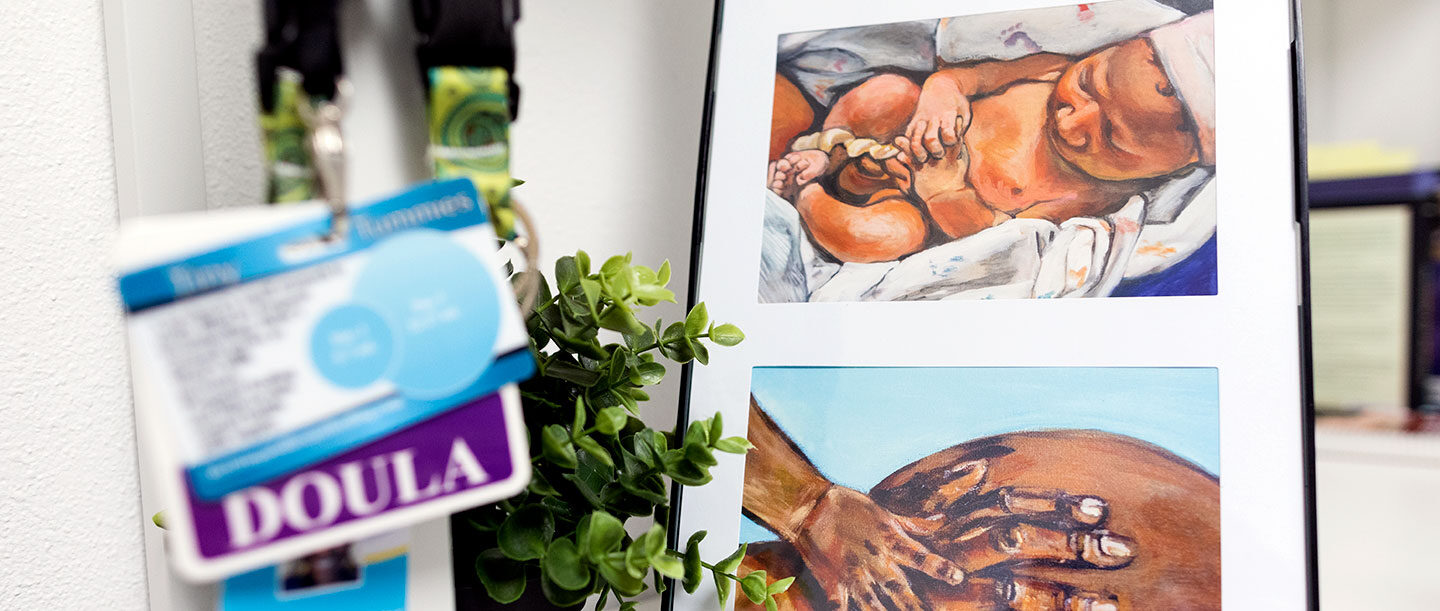Today Not Tomorrow Family Resource Center Community Based Doulas and Family Support Programming

At a Glance
This project, led by Today Not Tomorrow, Inc., aimed to sustain access to low and no-cost doula services, implement Harambee Birth and Family Center services for autonomous care options for Black families and finalize accreditation for a midwifery school to train six BIPOC midwives. Historically, midwives, similar to today’s doulas, played a crucial role in pregnancy care, but their contributions were marginalized with the rise of the medical profession, diminishing community-based midwifery and Indigenous birth practices.
As a result of this project, the Harambee Birth and Family Center expanded their services with community-based doulas, scholarships for BIPOC doulas, and improved lactation support. Their integrated care model and new partnerships aimed at doula training marked significant progress, and the first cohort of doulas advanced into their second year of training and clinical preceptorship.
The Challenge
Doulas have been recognized for their positive impact on maternal and infant health, including reducing preterm births and low birth weight babies and improving breastfeeding success. Doulas are non-clinical, paraprofessional birth workers who provide physical, emotional and informational support during pregnancy, childbirth and early parenting. Historically, midwives, particularly Black and Indigenous midwives, played a central role in pregnancy-related care in the US, offering support similar to today’s doulas. Midwives were essential in home births; however, with the rise of the medical profession and obstetrics, midwives were marginalized and their contributions were diminished, erasing opportunities for community-based midwifery and indigenous birth practices to continue.
Project Goals
The project aimed to sustain current infant and maternal health programs, ensuring continued access to low or no-cost doula services, breastfeeding support and family services for BIPOC birthing people and their families. Additionally, it sought to provide autonomy to Black families in choosing a range of care and birth options through the implementation of Harambee Birth and Family Center services, which were led by Black midwives, doulas and community health workers. Lastly, the project planned to finalize accreditation for a midwifery school and begin training the first cohort of six BIPOC midwives.
Results
This project made progress toward each of its goals. The Harambee Birth and Family Center expanded its family support services, introducing community-based doula programs, expanding midwifery services with scholarships for BIPOC students and enhancing peer-to-peer lactation support. The implementation of a one-stop-shop model provided integrated care that utilized diverse community resources. Additionally, postnatal care services were successfully expanded through home visits, and telehealth options were maintained to ensure accessibility and safety for the families served. Newly formed partnerships with Rock County Public Health and KJ Care and Empowerment Center aimed to provide doula training and ongoing consultation services. As the project concluded, the first cohort of doulas were beginning their second year of training and their clinical preceptor work.
